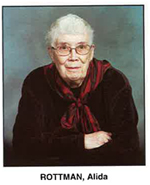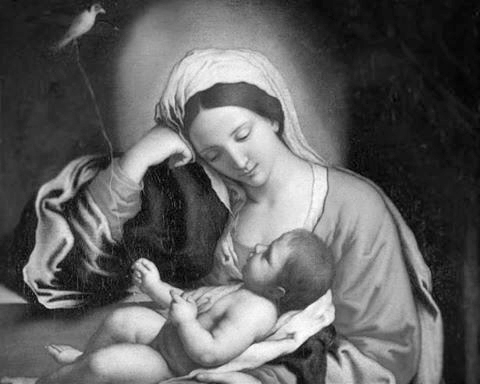June 2015
Not All at Once
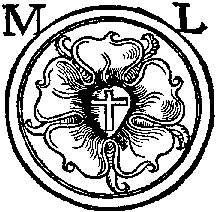 |
|
Luther on Human Decadence
“It
has now become very common for people to do whatever they
desire, and yet they want it not to [look that way], nor do they
want to be rebuked for it. Some act as if they are so completely
pure and blameless that what they do must not be called evil or
wrong deeds. They pretend great Christian love and virtue, and
yet they treacherously carry on their evil traps and tricks.
They proceed to flattering people. They can dress and adorn
themselves as if they had acted correctly, imagining that if
they can act pure in front of people, then no one can publicly
rebuke them, and even God will let Himself be deceived. But they
will learn what He will say to that. God does not let Himself be
mocked or made a fool of, as people do, Saint Paul says
(Galatians 6:7). Here there is no value in covering up and
embellishing, but only in dying and being dead to vice and
striving for what is right, divine, and Christian.”
[Martin Luther, Sermon on Colossians 3:1–7 (1534)
Luther’s Works 77:108.] |
|
President’s Report…
by Earl Nelson
Last Sunday was Pentecost, the
50th day after Easter, counting Easter as the first day of the
fifty. As recorded
in Acts 2:1 it is the day on which the Disciples received the
Holy Spirit, and were finally enabled to act on what they
believed and knew.
It is that way with us as well: we need divine intervention
every step of the way, or we languish and do little or nothing,
even when we believe.
A living faith is an active faith, one that issues in
works. The lesson
of Pentecost is one we should keep in mind every day of the
year. We should
pray daily for the Holy Spirit to strengthen our faith and for
our faith to result in works that would be pleasing to God.
A notable work in the Parsonage is
nearing completion, the repairs and maintenance underway in the
upstairs bathroom.
Thanks to Alex Ceaicovschi’s expertise, diligence and
generosity, this job is both looking good and within the modest
budget that was available for it.
If you like yardwork, there is going to be a work day
soon in the Parsonage garden.
The front bed needs the shrubs removed and new ones put
in. I have proposed
Saturday, June 6th for that.
I like to start early so I’m thinking 9am, but that is
negotiable.
How nice to see the new Acolytes at
work in the 10:30 liturgy!
Thanks to the hard work and devotion of Evan Ceaicovschi,
Sam and Lily Allen for serving in this important way that adds
to the worship experience of each of us.
There will be a reception in honor of the confirmation of
Samuel Allen after the 10:30 liturgy May 31st.
Confirmation is quite an achievement.
The children, parents and teachers all put in three years
of study.
Our Sunday School children, with the
help of their devoted
teachers, will be working on school kits to donate to
Lutheran World Relief later this summer.
They will need funding for that, which means that we can
help by supporting the Bake Sale on June 7th.
|
|
less press. It was the
Heidelberg Disputation
that really set the Reformation in motion. I might
summarize it here by saying that it shows us how deep and
destructive sin is, and how desperately we need God’s saving
grace to redeem our works. What a mighty work the
Heidelberg Disputation
was! Next up is Hebrews, beginning on June 7th. Come
join us in the 9:00 am study group on Sunday mornings. |
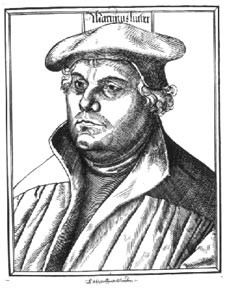 |
|
SAVE THE DATE!!!!
|
|
STEWARDSHIP
The Bread from Heaven
There are many examples in the
Bible of God taking care of his people in times of need.
Usually, this help comes in the form of physical
nourishment through a miraculous act.
How long did God feed the Israelites when they were
wandering in the desert?
How many loaves did Jesus provide the hungry crowd by the
Sea of Galilee?
These are mighty acts of God that we all know and can recite,
and it speaks to the real human need of hunger.
However, we also know that the Israelites complained and
rejected this manna from heaven and that the crowd sought Jesus
out not for his wisdom, but out of their own self-interest.
Jesus, seeing their hearts, rightly reprimanded them in John
6:27:
Do not labor for the food which
perishes, but for the food which endures to
everlasting life, which the son
of Man will give you, because God the Father
has set His seal on Him.
This is indeed a difficult command
to follow. Far too
often we are overpowered daily by our physical needs and we
forget the spiritual lesson to be learned both from God’s
withholdings and blessings.
Recently, the Church council has
been occupied with financial concerns.
The last quarter of 2014 and the first quarter of 2015
have seen a significant drop in giving.
This has resulted in a lack of funding for the works of
the church. As a
council we are concerned about the trend, but we know that
trials produce faith.
We also know that faith without works is dead.
We are indeed thankful that God is reminding us that we
are not laboring to meet our immediate needs, but labor to
believe that Jesus is the source of everlasting life.
In Luther’s words, this “great, high work of the
resurrection of Christ…is to be preached…so that it produces
fruit in us, awakens and kindles our hearts, and works in us new
thoughts, understanding and spirit, life and joy, comfort and
strength” (Luther’s Works
77:46-47). So, we pray that as our faith increases, so would our
support of the church and its works.
─Kari Ceaicovschi, Church Council
Stewardship 2015
Month (April)
Year to date (Jan-April)
Budget
$20,749
$82,311
Received
$19,389
$77,868 |
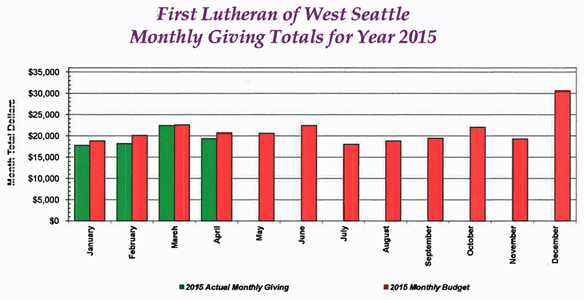
The Endowment Fund
Putting the Church in Your Will
By Pastor Marshall
Our church
endowment fund continues to grow.
We thank God for all who have made gifts to this fund and
the support it provides our church. Especially we thank God for
the major donors to our endowment fund – George (1925-2003) &
Marion (1929-2005) Colvin, Lila Granaas (1913-2002), Orma
Nesheim (1917-2010), and Alida Rottman (1922-2011).
One significant way to support the
fund is to include the
church in your will.
If you would like to do this and have not done so
already, think of giving
10% of the residual value of your estate to the church.
In this way you will be able to tithe the income the
investments of your estate has earned over the years.
This is a fitting way to thank God for the blessings of
prosperity we all enjoy.
Our endowment fund was established
in January 1996.
The gifts made to the fund are never spent.
Most of the interest earned is added each to year to help
meet our budget. In
this way you can go on supporting our church long after you have
departed to join the church triumphant.
Praise be to God!
|
|
The Secular City
-----------------------------------------------------------------------------------------------------------------------------
50th Anniversary 1965–2015
By Pastor Marshall
In 1965, the Harvard Divinity
School professor, Dr. Harvey G. Cox (b. 1929), published
The Secular City –
and it caused quite a stir, selling over one million copies
since then. In it he argued that the church should quit dwelling
on the religious – prayer, worship, salvation from hell, and
life in heaven after we die. Christians instead should
concentrate on the secular – work, worldly well-being, justice
for all, and happiness in this life. The church should promote
liberal changes in all these areas – “something wholly new [and
thereby render its] former ways of thinking and doing wholly
obsolete” (pp. 98, 101). But it is “hampered from doing so by
doctrines of the church deriving from the frayed-out period of
classical Christendom and infected with the ideology of
preservation’ (p. 91). What has been forgotten is that “there
are more important things than dying for the faith” (p. 2), Cox
writes.
In the 25th anniversary edition of
this book, published in 1990, he says that
The Secular City is
needed now more than ever (p. xi). We still need to see, he
thinks, that God is “the mysterious and elusive Other… living in
unexpected quarters,” like the secular over against the
religious (p. xiii). The Bible has been “too severely tampered
with” (p. xvii) to be our source for understanding, believing
in, and following God.
It is precisely here that a
Lutheran must part company with Professor Cox and his
prestigious text, even though it has become a run-away best
seller over the last half century. |
|
Jesus Over Moses: Studying
Hebrews
---------------------------------------------------------------------------------------------------------------------------------------------------------------------------------------------------------
Summer 2015 Bible Study with
Pastor Marshall
Sundays, 9 am - 10 am, Room D
This summer we will take 12
weeks to study The Book of Hebrews – which is about how the new
covenant in Christ surpasses the first covenant with Moses based
on righteousness coming from keeping the Law of God (Hebrews
7:22, 8:13).
Each week we will concentrate on
a few verses, aiming to find help in them for our growth in
faith, love, and understanding. Here is the class schedule:
June 7……
Heb 1:1-2:18
July 5…… Heb 6:1-20
August 2….. Heb
10:1-39
June 14….
Heb 3:1-19
July 12….. Heb
7:1-28
August 9….. Heb
11:1-40
June 21….
Heb 4:1-16
July 19….. Heb
8:1-13
August 16… Heb
12:1-29
June 28….
Heb 5:1-14
July 26….. Heb
9:1-28
August 23… Heb
13:1-25
FEEDBACK!!!!
Anyone interested in sharing thoughts and suggestions
about the 2014 St. Nicholas Faire, please join us in the Library
on Sunday, June 14, 2015 at noon.
Feedback on what went well, what was just OK, and what
needs improvement or changing is welcome.
FOOD BANK COLLECTION
for Summer is lunch and snack foods for children who are home
from school: peanut butter, jam, crackers, energy bars, seed &
nut packs, macaroni & cheese are just a few suggestions.
And, bring in fresh produce as well!
FLOWER CHART:
There are still a number of spaces left for summer Altar
Flowers as well as through the end of the year.
If you were interested in signing up for Altar Flowers
this year but have not yet had the chance, you might consider
one of the remaining dates.
MID-YEAR CONGREGATIONAL MEETING
has been set for Sunday, July 27th, immediately following the
10:30 am Holy Eucharist, in the parish hall.
Mark your calendars!
Beverages will be available.
Voter registration will be on the tables at the back of
the hall.
LIBRARY:
Thinking about taking a vacation this summer?
We have a wonderful variety of books to choose from to
help you relax after a busy day touring around.
Stop in to our library when you’re at church and see
what’s new.
READING THE KORAN
with Pastor Marshall.
These two hour
classes are on Thursdays July 9th through July 30th from 7:00 to
9:00 pm. This
summer the class will be taught
on the Eastside at St. Andrew’s Lutheran Church in Bellevue.
Call the office to
register.
Pastor
Marshall has been teaching this class four times a year since
2003.
Compass Housing Alliance
was pleased to receive nine towels from recent donations left at
the office. Every year they go through hundreds of towels,
especially at the Pioneer Square Hygiene Center where 150 people
get a free shower daily.
If you were thinking of helping in this way you’re not
too late, donations can still be left at the office.
|
In support of the Sunday School children in their efforts to build school kits
for Lutheran World Relief.
|
Judging Lutheran Pastors
The standards and procedures for reviewing the performance of
our pastors – The Fatal
Vice: Standards for Judging Lutheran Pastors (1994, 2006) –
was accepted on May 5, 2015, by Christ the King Lutheran Church
in Goldendale, WA, with their pastor, The Rev. Dana Helsing,
signing off on this new approach.
The Fatal Vice has
been studied by other congregations over the years, but this is
the first time that it has been officially adopted in another
parish. May it be a blessing to Christ the King Lutheran Church! |
|
CHRISTMAS IN JULY (& AUGUST)
[or until all the ornaments are picked!]
ST NICHOLAS FAIRE
Sunday, December 6, 2015
I realize that it seems way too early to be bringing up the
holiday season, but planning begins far in advance of the event
date. We will again
have an “ornament” decorated tree in the lounge during the
summer months. The
tree will have “wishes” on it for items that will be needed to
complete gift baskets to be sold at the St. Nicholas Faire, the
proceeds of which will be given to the West Seattle Food Bank
and the West Seattle Helpline.
Your job is to choose as many ornaments as you wish,
purchase the items from each ornament, and bring them to the
church to donate to the Faire.
Easy, simple, as little hassle as possible.
If you have questions and/or suggestions, please call
Larraine King (206-937-6740).
And while you are reading about the
St. Nicholas Faire, put the date –
Sunday, December 6, 2015
from 4-7 pm –
on your calendar and start sharing the date with your friends
and family. (This
year our Faire doesn’t interfere with a Seahawks game!) Plan to
come and support the Food Bank and Helpline, while having a
joyous time enjoying the festivities!!!!
More details in the September.
Stay tuned!!!
─Larraine
King & Liz Olsen |
|
|
When Praying Is Hard to Do
---------------------------------------------------------------------------------------------------------------------------------------------------------
Holocaust Anniversary 1945–2015
By Pastor Marshall
Why should we remember this 70th
Anniversary of the liberation of the concentration camps in
Europe at the end of World War II? Some would say so that we’ll
never forget how horrible people can be – remembering our
“desperately corrupt” hearts (Jeremiah 17:9). But I would say we
should remember so we can ponder again this stirring passage
from the award winning memoir –
All But My Life
(1957, 1995) – by the concentration camp survivor, Gerda
Weissmann Klein (b. 1924). It gives new meaning to the plaintive
cry of the disciples, “Teach us to pray” (Luke 11:1), and Paul’s
lament about “sighs too deep for words” (Romans 8:26):
There was muffled crying all
around me. I did not cry, but there, in those barns, I stopped
praying. Through all the years [of my captivity] I had prayed to
God ardently and with hope. Now I prayed no more. I did not
consciously know why, for I was closer to my Maker than ever.
One short shot away. I wanted to be at peace with God, but I
could not pray. But later, much later, I thought about my way of
praying…. From [the time that I was twelve years old and] on, I
had always thanked God for the gifts bestowed upon me, and they
were many. There had always been something to be grateful for,
even after 1939 [when the Nazis invaded Poland], but during that
cold march, when we rested in the icy barns, afraid, I could
pray no more (pp.
185-86).
Klein is the recipient of a 2010
Presidential Medal of Freedom. |
MARY,
MOTHER OF OUR LORD
The Feast of Saint Mary, the Mother of Our Lord Jesus Christ,
will be celebrated at our Holy Eucharist on
Sunday,
August
16th.
On this day we will thank God for the life and faith of
Saint Mary, who has been called the
Mother of all believers
for she was the first person to believe in the gospel.
Lutherans for centuries have honored Our Lady by praying the "Magnificat":
My
soul magnifies the Lord, and my spirit rejoices in God my
Savoir, for he has regarded the low estate of his handmaiden.
Surely, from now on all generations will call me blessed;
for the Mighty One has done great things for me, and holy is his
name. His mercy is
for those who fear him from generation to generation.
He has shown strength with his arm; he has scattered the
proud in the thoughts of their hearts, he has brought down the
powerful from their thrones, and lifted up the lowly; he has
filled the hungry with good things, and sent the rich away
empty. He has
helped his servant Israel, in remembrance of his mercy,
according to the promise he made to our ancestors, to Abraham
and to his descendants forever.
(Luke 1:46-55)
|
|
More Luther Sermons
By Pastor Marshall
More volumes of
Luther’s writings are being translated. The latest is volume 77
– sermons newly translated from the 1544
Summer Postil or
collection. Among my favorite passages are the following – make
use of them as your prepare for the 500th Anniversary of the
reformation in 2017: “[The] Psalter [is] the finest and most
precious prayer book and hymnal of them all” (9); “[This] cannot
be any trifling wrath of God when we hear that no other
sacrifice can stand up to this or compensate for sin except the
only Son of God” (19); “[Our] old hide must be thoroughly salted
and afflicted so that we cry out and call for help, and so
stretch and expand ourselves both through internal and external
suffering that we may come up to and attain… joy and comfort
from [Christ]” (25–26); “[When] you feel that it is too hard for
you to believe, do this: fall on your knees, tell Him your
inability, and say with the apostles: ‘O Lord, increase our
faith’” (32); “[Foolish] and inexperienced spirits…. think that
faith is nothing other than having heard and knowing the story
and history, and then they imagine that they have at once and
thoroughly understood and believed everything the Gospel says
about Christ when they have heard and read it once, and that
they no longer need to learn and believe it. This is nothing
other than a loose, futile thought, which is proved when they
must confess that this knowledge of the history lies in their
hearts still, cold, and idle, like a bare, empty husk, without
moisture or strength, neither benefiting nor helping them,
neither strengthening nor improving them” (46); “We should not
dream about a church on earth in which there are no defects or
errors in faith” (49); “Scripture is the kind of book which
requires not only reading and preaching but also the… revelation
of the Holy Spirit…. This revelation also requires true students
who want to be taught and instructed…. [For this] is the kind of
doctrine which makes our wisdom into folly and puts out the eyes
of our reason, if it is to be believed and understood. It does
not come from human wisdom like other teachings…. That is why it
is impossible to grasp this revelation with our reason…. All
heresies from the beginning have arisen from reason…. Only the
godly, simple people who hold to this course and say, ‘God said
it; therefore, I will believe it,’ can grasp and understand
[it]” (51–52); “So [the Holy Scriptures] are only understood
when the Holy Spirit comes, preaches, and reveals them to people
who believe with simple hearts and persist in them. Then it
begins to taste good and to provide its juice and strength, so
that they must say, ‘This does it; it enlightens the heart and
lights a fire there’” (55); “[Because the Bible] is called God’s
Word, it is a completely different thing (even if it is spoken
through the mouth of a man or even through the mouth of a
donkey―Numbers 22:28–30) than what is called ‘man’s word’” (63);
“Christ… can help no one except those who perceive sin and
death” (71); “Whoever has not tasted the bitter does not relish
the sweet” (73); “We must not be troubled and frightened by [the
fact] that no one wants… the Gospel” (73); “To know the weak
Christ who hangs on the cross and lies in death requires greater
understanding” (75); “[Believers] should always strive to become
stronger” (76); “God’s way of dealing with us is that He first
frightens those who are not yet frightened” (80); “The devil
depicts a false Christ or even disguises himself in His form”
(83); “Christ paid for our sin through His blood and dying, and
reconciled God” (89); “God wants all people… to learn to know
themselves” (93); “Who would believe that I, with such a
wonderfully respectful life (even if I am without faith), merit
only God’s wrath” |
| Experience teaches how difficult it is to keep [his] Word, because the holy cross has been laid on it. Without this, our own flesh and the old nature would still be rebellious and would prefer what is easy and nice…. [Therefore the] church on earth must be and struggle in weakness, poverty, misery, anguish, death, disgrace, and shame” (339); “[Our goal should be] not only gladly hearing [Christ’s] Word but also adhering to it and being conquered by it” (340); “If we remain firm… against the enemies of Christ and His Church,… then … He… will…. give us the victory” (341); “It is very difficult to straighten out the human heart so that in fortune and welfare it does not become secure but remains humble, and so that, on the other hand, in fright and misfortune it has comfort and confidence toward God” (342); “Look at how great is the man who is a Christian…. He is a true prodigy on earth…. However, before the world he is highly and deeply hidden and unknown. The world is unworthy of recognizing such people. Rather, the world must regard them to be its doormats” (345); “As a true, faithful Mediator [Christ] can remove all of God’s wrath and hostility and make hearts certain of His fatherly grace and love” (361); “[Man] cannot turn itself to God, but is completely turned away from God” (366); “[God] does not give out of debt or obligation or because someone had asked or entreated for this. Rather, He is moved by His own goodness as a Lord who gladly gives” (368); “Faith always… remains in the longing and sighing…. Nevertheless, this… spark of faith does so much that God counts it as complete faith” (375); “The crowd of false churches is always much greater” (385); “We are to keep the Law, and yet not trust in it” (387). |
 |
|
Attacking Luther
--------------------------------------------------------------------------------------------------------
Diluting the Crucifixion
By Pastor Marshall
Luther insisted that there
couldn’t be any other reason for Jesus’ death than “to pay for
our sins and to purchase grace for us so that we might despair
of ourselves and our works, placing no trust in them, so that we
might, with courageous defiance, look only to Christ, and firmly
believe that he is the man whom God holds in our stead and for
the sake of his sole merits forgives us our sins, deigns to look
upon us with favor, and grants us eternal life” (Luther’s
Works 52:253, 76:164). These
dramatic “means” of our redemption were very important to Luther
(The Book of Concord,
ed. Tappert, p. 414). |
|
This
view of Luther’s has come under a broad attack in the recent
book, Did God Kill Jesus?
Searching for Love in History’s Most Famous Execution (New
York: Harper One, 2015), by Tony Jones – professor of theology
in Minneapolis (pp. 21, 113, 158). In this book he says that if
the “whole point of Jesus was that a perfect God-man be
sacrificed to pay a debt, why did Jesus live for thirty-three
years before being executed? Surely, Jesus’ teachings and
miracles were great, and he was able to pick some disciples to
tell his story. But if all God needed was an innocent, sinless
victim, he may just as well have had the baby’s throat slit in
the manager (Merry Christmas!). At least then there would be no
doubt about the real meaning of Jesus’ death” (p. 136). This
sacrificial view of the death of Jesus fails, according to
Jones, because in it “God has to save us from God.” This “may be
a God to be feared, but he’s not a God to be loved” (p. 138).
Against Jones is another new
book, Defending
Substitution: An Essay on Atonement in Paul (Grand Rapids,
Michigan: BakerAademic, 2015) by Simon Gathercole. He argues
that Luther’s view is Biblical and must be maintained in the
church today (pp. 16, 109–111). But this book was not on sale at
our May 2015 synod assembly – as was the book by Jones. Too bad.
Once again we see the aversion to substantive theological debate
in the ELCA. |
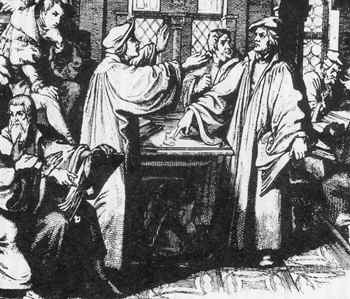 |
Samuel 25:37
Monthly Home Bible Study, June
2015, Number 268
The Reverend Ronald F. Marshall
Along with our other regular study of Scripture, let us join as
a congregation in this home study. We will
study alone then talk
informally about the assigned verses together as we have
opportunity. In this way we can "gather
together around the
Word" even though physically we will not be getting together
(Acts 13.44). (This study uses the RSV translation.)
We need to support each other in this difficult project. In 1851
Kierkegaard wrote that the Bible is "an extremely dangerous
book.... [because] it is an imperious book... – it takes the
whole man and may suddenly and radically change... life on a
prodigious scale" (For
Self-Examination). And in 1967 Thomas Merton wrote that "we
all instinctively know that it is dangerous to become involved
in the Bible" (Opening
the Bible). Indeed this word "kills" us (Hosea 6.5) because
we are "a rebellious people" (Isaiah 30.9)! As Lutherans,
however, we are still to "abide in the womb of the Word" (Luther's
Works 17.93) by constantly "ruminating on the Word" (LW
30.219) so that we may "become like the Word" (LW
29.155) by thinking "in the way Scripture does" (LW
25.261). Before you study, then, pray: "Blessed Lord, who caused
all holy Scriptures to be written for our learning: Grant us so
to hear them, read, mark, learn, and inwardly digest them, that
we may embrace and ever hold fast the blessed hope of
everlasting life, which you have given us in Our Savior Jesus
Christ. Amen" (quoted in R. F. Marshall,
Making A New World: How
Lutherans Read the Bible, 2003, p. 12).
Week I.
Read 1 Samuel 25.37 noting the name
Nabal. Who was he? On
this read 1 Samuel 25.2-3, 17 and 25 noting the words
rich,
Abigail,
churlish,
ill-natured and
folly. What is the
evidence for this? On this read 1 Samuel 25.10-11 noting the
words who and
away. Were these
concerns reasonable caution or foolhardiness? On this read 1
Samuel 25.11 noting the uses of the word
I and the four uses
of the word my. Does
this show crass egotism on Nabal’s part? On this read 1 Samuel
25.14 and 39 noting the words
railed,
insult and
evil-doing. What
confirms these negative assessments of Nabal’s response? On this
read 1 Samuel 25.6-8 and 21 noting the words
greet,
salute,
whatever, and
guarded, as well as
the three uses of the word
peace. Are all of
these words generous, respectful and conciliatory? Why, then,
does Nabal respond in such a hostile way? On this read Proverbs
18.12 noting the words
haughty and
destruction. Is it this recklessness then that makes him so
foolish? On this read Proverbs 11.17 noting the words
kind and
benefits. Could it be
that Nabal’s foolishness was actually closer to cruelty?
Week II.
Read again 1 Samuel 25.37
noting the word told.
What did Abigail tell Nabal? On this read 1 Samuel 25.13, 22,
24, 27, 31 and 33 noting the words
sword,
leave,
guilt,
present,
pangs and
discretion. How did
Nabal respond to Abigail’s report? On this read 1 Samuel 25.37
noting the words heart
and stone. What does
this mean? On the word
heart read Joshua 2.24 noting the word
fainthearted, and 1
Samuel 7.10 noting the words
confusion and
routed. These verses
suggest that Nabal was losing his courage and boldness that
caused him to respond as he did in the first place. On the word
stone read Ezekiel
11.19-20 noting the words
stony, heart and
obey. This adds that
Nabal wasn’t going to apologize for his mistreatment of David’s
servants, nor was he going to thank Abigail for surreptitiously
intervening on his behalf to save his life. Instead he was going
to dig in and silently maintain his position.
Week III.
Reread 1 Samuel 25.37
noting the words heart
and stone. Why was
Nabal so inflexible? Who did a better job dealing with failure?
On this read 2 Samuel 12.1-25 noting the line by the guilty King
David, I have sinned
against the Lord. Why did David turn around when Nabal
didn’t? On this read Psalm 32.3-5 noting the words
acknowledged and
forgive. Why couldn’t
Nabal repent like David did? On this read Luke 22.3 noting the
words devil and
entered. Had the
devil entered Nabal as he had with Judas? Or was Nabal’s problem
simpler – due simply to his foolishness? On this read Proverbs
1.32-33 noting the words
simple, fools,
listens and
secure. Then again,
David had Nathan and Nabal had Abigail. Was there a difference
there? On this read 2 Samuel 12.1 noting the line
the Lord sent Nathan to
David. Read also 1 Samuel 16.13 noting the line
and the Spirit of the
Lord came mightily upon David from that day forward. Does
Nabal have the same two gifts that David did? Without them would
David have been like Nabal?
Week IV.
Read 1 Samuel 25.37 one
last time noting the line
the Lord smote Nabal; and he died. Why did God do this? On
this read Leviticus 26.14-17 noting the two lines
break my covenant and
cause life to pine away.
Why is sin punishable by death? On this read Genesis 2.17 noting
the word die and
Romans 6.23 noting the word
death. But why this
correlation? Why not some lesser punishment? On this read Exodus
34.14 noting the line the
Lord… is a jealous God. What does this do to God? On this
read Ezekiel 5.13 noting the words
anger,
fury,
satisfy,
jealousy and
spend. Note also the
description of God as the
Fear of Isaac in Genesis 31.42. But if God is so fierce, why
does he wait ten days
before he kills Nabal? On this read Luke 13.5 noting the words
unless,
repent and
perish. Was it that
God was giving Nabal a chance to turn from his arrogance and
live? Why would God do that? On this recall the word
slow in Psalms 86.15,
103.8 and 145.8. How gracious is that little word? |
|
X
PARISH PRAYERS
X
|
|
O Lord our God, I flee to you
for help. Be with me as you were with your dear Son when he was
tempted. I have no power to resist the devil, except by your
intervention. My weakness and troubles are known better by you –
O Father, rescue me, I pray. Let your power be made perfect in
my weakness, that I may at length gain the victory. In Jesus’
name I pray. Amen.
[For
All the Saints
(ALPB, 1994-1996) IV:
106, altered]
|
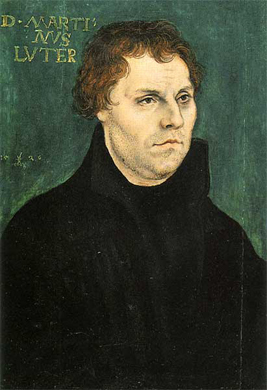
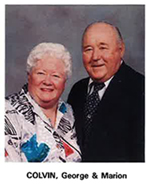

%20web%20size.jpg)
